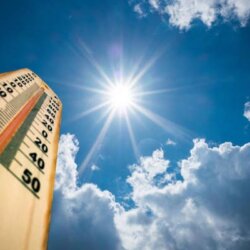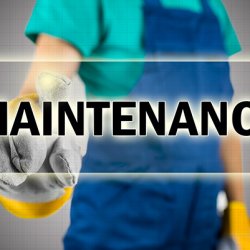
With the Environmental Protection Agency’s (EPA) phaseout and ultimate ban of R22 (commonly known by the brand name, Freon) many St. Louis homeowners may be wondering what it will mean for them and how it will affect their air conditioning units. Fortunately, homeowners will not be expected to replace their systems immediately, which means you have plenty of time to plan.
If you have concerns about the R22 ban and how it might affect your household, or would like one of our heating & air conditioning service technicians to service or update your air conditioner, give us a call!
Information on the Phaseout and Ban of R22
The ban on R22 is about the refrigerant used in most AC units up until recently. If your air conditioner or heat pump was built and installed before January 1, 2010, it is likely that it uses R22 refrigerant. While R22 has served its purpose and been very useful in terms of providing necessary refrigeration, it has not been without downsides. The reason is that when R22 leaks or even vents out of an AC unit, it depletes the ozone. Because there are good alternatives to R22 that do not contain the same chemicals linked to ozone depletion, the EPA has determined that that a phaseout and eventual ban on R22 is the most sensible course of action.
One of the major steps in support of the R22 ban is that as of January 1, 2020, the EPA has placed a ban on the production, importation, or use R22 refrigerant, except for in the continuing servicing needs of existing equipment. This does not mean homeowners must refrain from using their existing air conditioners that use R22. It simply means that new units will not be manufactured and new supplies of the refrigerant will not be brought in.
Naturally, the point of the R22 ban is to end the use of the substance, but consumers will still be able to obtain it as it phases out by way of pre-manufactured supplies as well as reclaimed supplies. (The reclaimed R22 comes from existing AC units that have been returned for repair or replacement by their manufacturers). This will continue until the supply runs out.
Of course, we can expect as the supply of R22 diminishes, that the price of R22 will increase under these circumstances. While the solution is not permanent, it does give consumers a stopgap for use of their current air conditioners until they are able to replace them.
Who Is Likely to Be Most Affected by the R22 Ban?
Before fretting about where you will find the budget for a new air conditioner, you may need not worry at all. If your home has an air conditioner that is fairly new, it probably will not be affected by the ban. Most units produced after 2010 were made to comply with refrigerants that do not cause ozone depletion.

If you do have a unit that uses R22, and it has a leak, you have a few different options:
- Air conditioner repair – A certified AC technician can find the leak and repair the cause, which buys you time before the R22 ban depletes supply.
- Air conditioner retrofitting – If your unit is otherwise still in good working condition, you can choose to have your current unit retrofitted to utilize a refrigerant that does not cause ozone depletion. We would suggest caution on this option, however, due to its potential for voiding the manufacturer’s warranty.
- Air conditioner replacement – If it is in the budget, now is a great time to swap your old unit out for a new, energy efficient option. There are also often many rebates and other incentives that can help you save on AC replacement.
All in all, the R22 ban will impact some homeowners. Whether that is today or down the road, Galmiche & Sons is here to help!
Learn More About the R22 Ban
If you have any more questions or concerns about the R22 ban and how it may affect your home heating & air conditioning components, give Galmiche & Sons a call, today. We are happy to answer any questions you have or schedule an appointment for your routine HVAC maintenance at your convenience.









